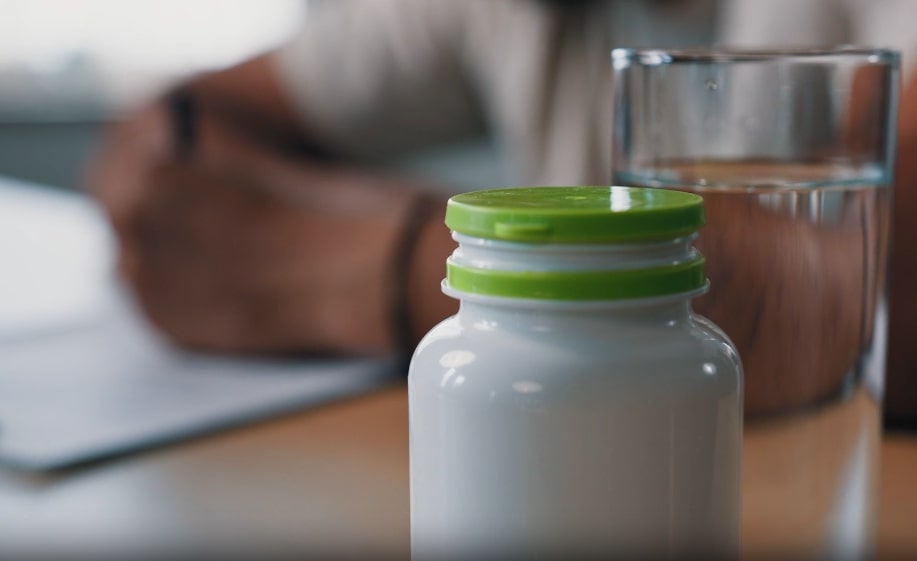I often encounter the complex issue of leaky gut syndrome. This condition occurs when the lining of the small intestines is compromised, leading to bacteria, toxins, and undigested food particles seeping into the bloodstream.
While it is not officially recognized as a medical diagnosis, it manifests through various symptoms, including chronic headaches, abdominal bloating, fatigue, and food allergies.
Determining the exact timeframe for healing a leaky gut is a challenge, as it largely depends on the underlying causes and varies from person to person.
Diagnosing this condition is also complex due to its symptoms often mirroring those of other common gastrointestinal disorders.
Today, I’m here to discuss various aspects of fixing this issue and provide insights into this intricate health issue.
How Can You Help a Leaking Gut?
First, I want to address the ways you can help with fixing this issue.
To address and help heal a leaky gut, a combination of dietary changes and lifestyle modifications is essential. Both play a crucial role in improving intestinal health and function.
Dietary Changes
Diet is a critical factor in managing and healing this condition. The goal is to balance microbes and strengthen the intestinal lining through specific dietary choices.
| Dietary Change | Description |
|---|---|
| Avoid Trigger Foods | Eliminate foods that can aggravate leaky gut, such as sugar, gluten, and dairy. |
| Incorporate Probiotics | Consume fermented foods like yogurt, sauerkraut, and pickles, which are rich in probiotics to replenish healthy gut bacteria. |
| Add Fiber-Rich Foods | Include foods high in fiber, such as whole grains and vegetables, to enhance intestinal wall integrity. |
| Supplements | Consider supplements like L-glutamine, which may aid in repairing the intestinal lining. |
| Flavonoid-Rich Foods | Eat foods high in flavonoids (fruits and vegetables) for their positive effects on the epithelial barrier. |
Lifestyle Modifications
A healthy lifestyle supports the healing process of leaky gut by reducing inflammation and improving overall function.
By implementing lifestyle modifications, you can significantly contribute to the healing of a leaky gut. It’s important to remember that these changes should be made gradually and consistently for the best results.
Additionally, consulting with a healthcare professional for personalized advice and guidance is always recommended.
| Lifestyle Modification | Description |
|---|---|
| Regular Exercise | Engage in activities that promote gut motility and reduce inflammation, like walking or yoga. |
| Stay Hydrated | Ensure adequate water intake to help the body eliminate toxins and support overall health. |
| Reduce Medication Use | Limit the use of medications like NSAIDs and steroids that can damage the digestive tract. |
| Stress Management | Implement stress-reduction techniques such as meditation, deep breathing, and mindfulness. |
What are the Contributing Factors?
Leaky gut syndrome, characterized by increased intestinal permeability, can be influenced by a variety of factors. Understanding these contributing factors is essential for effectively addressing and managing this issue.
Medical Conditions
- Type 1 Diabetes: This autoimmune condition can affect gut health, potentially leading to increased intestinal permeability.
- Heart Disease: Cardiovascular issues may indirectly impact health and contribute to the syndrome.
Dietary Factors
- Unbalanced Diet: A diet high in processed foods, sugars, and unhealthy fats can disrupt gut flora and damage the intestinal lining.
- Excessive Alcohol Consumption: Regular high alcohol intake can weaken gut barriers and increase permeability.
Lifestyle Factors
- Stress: Chronic stress is known to negatively affect gut health, potentially leading to increased intestinal permeability.
- Frequent Antibiotic Use: Antibiotics can disrupt the natural balance of gut bacteria, weakening the intestinal barrier.
The Role of Probiotics and Supplements
Probiotics and certain supplements are integral in the journey toward healing. These beneficial components play a significant role in maintaining and restoring gut health.
Importance of Probiotics
- Live Cultures with High CFUs: Probiotics, especially those with high Colony Forming Units (CFUs), are crucial for gut health. They aid in digestion, bolster immunity, and enhance nutrient absorption.
- Sources of Probiotics: Fermented foods like yogurt and kefir are rich in live cultures and probiotics. Including these in your diet can significantly aid in overall recovery.
- Diversity of Strains: When selecting a probiotic supplement, it’s important to choose one with a variety of strains. This diversity helps ensure a broad range of benefits and maximizes healing.
Role of Supplements
- Glutamine: This amino acid is vital for gut health. Found in protein-rich foods, glutamine helps improve the lining of the small intestines, promoting healing and reducing permeability.
- Additional Supplements: Other supplements, such as D-mannose, can also be beneficial. D-mannose is particularly known for its role in urinary health but can also support overall health.
Incorporating Probiotics and Supplements
- Fermented Foods: Regularly consuming fermented foods like pickles, which contain live cultures, can help maintain a healthy gut microbiome.
- Probiotic Supplements: For those who may not get enough probiotics from their diet, supplements can be an effective way to ensure adequate intake.
- Balanced Diet: Alongside probiotics and supplements, a balanced diet rich in fiber and essential nutrients is crucial for gut health.
Avoiding Trigger Foods
Identifying and eliminating foods that exacerbate leaky gut symptoms is crucial. Processed foods, sugary foods, and foods high in artificial additives are common triggers.
Removing these from your diet can lead to quicker healing of the leaky gut. Paying attention to food sensitivities and allergies is also important in managing and healing this condition.
Importance of Vitamin D
Vitamin D plays a significant role in gut health. A deficiency in Vitamin D has been linked to increased gut lining permeability. Natural sunlight exposure and Vitamin D3 supplements can be effective in fixing this condition.
Recognizing Signs
Identifying the signs of gut healing is crucial in understanding the effectiveness of the measures taken to address leaky gut syndrome. As it begins to repair itself, several noticeable changes can occur, indicating a positive shift towards better health.
- Reduction in Heartburn and Bloating: One of the first signs is the alleviation of common digestive discomforts like heartburn and bloating. This indicates that the gut is better at managing and processing foods.
- Regular Bowel Movements: Improvement in the regularity and consistency of bowel movements is a clear sign of a healing gut. This includes a decrease in both constipation and diarrhea.
- Tolerance to Previously Sensitive Foods: You may notice a reduced reaction to foods that previously caused discomfort or allergic responses.
- Diverse Diet Tolerance: Being able to consume a wider variety of foods without adverse effects is another indicator of gut healing.
- Clearer Skin: Skin conditions like acne, eczema, and rosacea often improve as gut health is restored.
- Reduced Inflammation and Irritation: A decrease in skin inflammation and irritation is also a positive sign, indicating reduced systemic inflammation.
- Increased Energy Levels: As it heals, nutrient absorption improves, often leading to increased energy levels and vitality.
- Stabilized Mood: Gut health is closely linked to mental health. Improvements in mood stability and a reduction in symptoms of anxiety or depression can be signs of a healthier gut.
- Enhanced Mental Clarity: Clearer thinking and improved concentration can occur as the gut heals, due to the gut-brain connection.
Timeframe for Gut Repair
The timeframe is essential for setting realistic expectations and maintaining motivation throughout the healing journey. The duration of the healing process is influenced by several individual factors.
| Aspect | Details |
|---|---|
| Understanding the Timeframe | The timeframe for repairing a leaky gut is essential for setting realistic expectations and maintaining motivation throughout the healing journey. |
| Varied Healing Times | The time it takes to heal a leaky gut can differ significantly from person to person. |
| Response to Treatment | Individuals may respond differently to dietary changes, supplements, and lifestyle modifications, which can also affect the healing timeline. |
| Dietary Adjustments | Long-term dietary changes, including incorporating anti-inflammatory foods and avoiding triggers, are essential for gut repair and maintenance. |
| Regular Exercise | Consistent physical activity is vital for improving gut motility and reducing inflammation, contributing to the healing process. |
| Supplementation | Continued use of beneficial supplements, such as probiotics and glutamine, can support and accelerate gut repair. |
| Incremental Improvements | Healing a leaky gut is typically a gradual process. Incremental improvements may be noticed over weeks or months. |
| Monitoring Progress | Regularly monitoring symptoms and overall well-being can help track progress and adjust strategies as needed. |
| Consistency is Key | Consistent adherence to a holistic gut health plan is crucial for achieving significant and lasting improvements. |
| Patience and Persistence | Patience is essential, as gut healing does not happen overnight. |
FAQs
Is coffee bad for leaky gut?
Coffee can be irritating to a leaky gut for some individuals, especially if consumed in large quantities. It can stimulate acid production and may aggravate symptoms like bloating and discomfort.
Are bananas OK for leaky gut?
Yes, bananas are generally good for leaky gut. They are easy to digest, high in fiber, and can help soothe the gut lining. Bananas also contain prebiotic compounds that support the growth of beneficial gut bacteria.
Is Rice OK for leaky gut?
Rice, especially cooked white rice, is usually well-tolerated by people with leaky gut. Brown rice, with more fiber, might be more challenging for some individuals.
Is cheese OK for leaky gut?
Cheese can be problematic for leaky gut, particularly for those with dairy sensitivities or lactose intolerance. It can contribute to inflammation and digestive discomfort in sensitive individuals.
The Bottom Line
I firmly believe in a comprehensive approach to healing leaky gut. This involves not just dietary modifications and the inclusion of beneficial supplements, but also significant lifestyle changes.
In my experience, effectively managing stress, ensuring proper hydration, and identifying and avoiding trigger foods are crucial elements of a successful healing strategy.
I always encourage listening to your body’s signals and seeking personalized advice from healthcare professionals to tailor a plan that best suits your specific needs and health goals.
Related Posts:
- How to Fix Stunted Hair Growth: 4 Crucial Steps
- Art Therapy for Post-Traumatic Stress Disorder: The…
- How Does Acupuncture Work? Harnessing the Healing Potential
- Unlocking Healing: The Crucial Role of Family…
- How Childhood Trauma Affects Us as Adults - Healing…
- How to Starve Bad Gut Bacteria: The Inside Battle



















